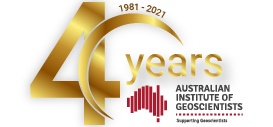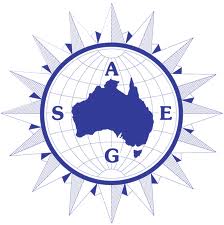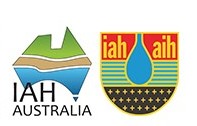
In 2006, researchers from the Institute de Recherche pour le Developpment or the Institute of Research for Development in Toulouse, founded a research project in West Africa called the West African Exploration Initiative or WAXI.
In this episode, we are joined by Mark Jessell and Nicolas Thebaud, who have been involved in the WAXI project from nearly the beginning and are now two of the people behind the Agate Project.

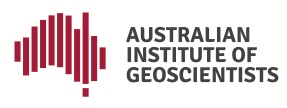
Geoscientist unemployment fell to 1.8% in September 2021: equal to the lowest level recorded in 10 years of quarterly employment surveys by the Australian Institute of Geoscientists (AIG).
The under-employment rate amongst geoscientists (respondents able to secure 25% or less of their desired workload) fell to 6.0%.
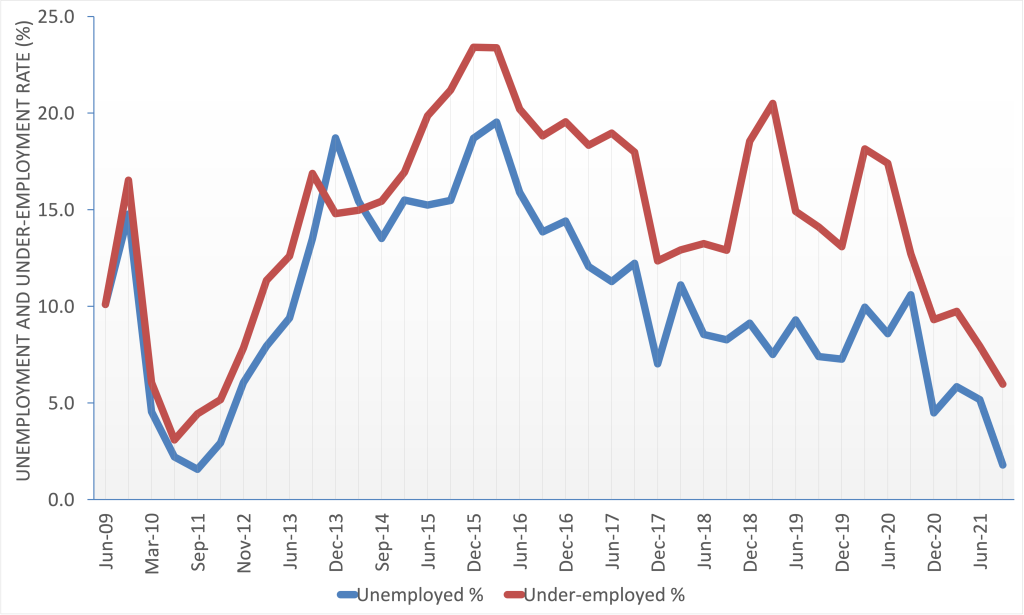
The unemployment and under-employment rates in the previous (June 2021) survey were 5.2% and 7.9% respectively.
AIG spokesperson Andrew Waltho suggested that “the survey results supported anecdotal evidence of improved industry activity and a tight market for geoscience skills across all sectors of the geoscience profession across Australia during the past year”. “The unemployment rate of 1.8% in the latest survey matches that recorded in the first quarter of 2011, when geoscientist employment in Australia bounced following the global financial crisis of 2009-2010” Mr Waltho said.
Unemployment and under-employment fell in all states, except for New South Wales.
Western Australia recorded an unemployment rate of 2.9%. No survey respondents identified as being unemployed in any other state.
Under-employment in Western Australia was 3.9%, 2.6% in Queensland (down from 15.6% in June 2021), 7.1% in Victoria (down from 14.3% in June 2021) and 20.0% in New South Wales. New South Wales was the only state to see an increase in under-employment, with the rate up from 15.4% in June 2021.
Survey respondents expressed a high level of confidence (65%) in maintaining their current employment for the next 12 months. Only two percent of respondents were not confident in retaining employment beyond the next three months.
Increased employment prospects and a correspondingly market for professional geoscientific skills resulted in 43% of respondents reporting improved employment conditions, and 52% of respondents reporting that their employment conditions has been maintained over the previous 12 months. An increase in respondents reporting improved conditions is expected if unemployment remains very low.
Most survey respondents work in mineral exploration (61%) and metalliferous mining (16%), followed by energy minerals and resources exploration (3%).
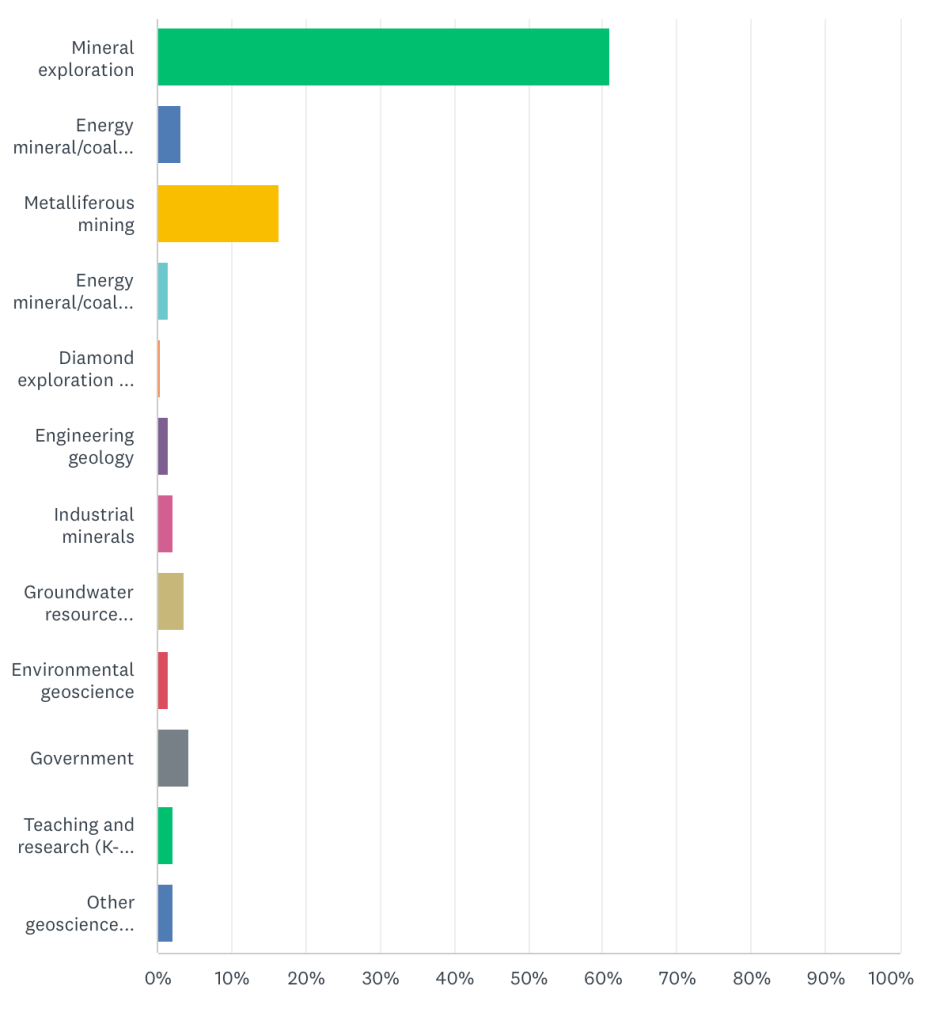
Submissions for the next survey, for the fourth quarter (October – December) 2021 will open in January 2022.
Contributors to the survey are thanked for their continuing support.

SJS Resource Management Pty Ltd (Deregistered)
ABN 26141857687
SJS Resource Management Pty Ltd, a business associated with Julian Vearncombe was voluntarily de-registered by ASIC 4/8/2021. The company URL www.sjsresource.com.au was deleted 3/2/2020 and expired 9/2/2020 upon the (part) retirement of Julian.
An entity variously named SJS Resource and SJS Geologists is now using the same web address. None of their quoted staff, geologists and geophysicists are known to be members of the AIG.
Julian Vearncombe & past staff of SJS Resource Management Pty Ltd (Deregistered) have no association with the businesses SJS Resource and SJS Geologists or its website.
This notice is published by AIG for the information of members
The Joint Ore Reserves Committee (JORC) is undertaking a detailed review of the Australasian Code for Reporting of Exploration Results, Mineral Resources and Ore Reserves (the ‘JORC Code’ or ‘the Code’) provisions and procedures, to maintain professional standards and to satisfy the ongoing governance requirements of the Australian Securities Exchange (ASX) and the Australian Securities Investment Commission (ASIC). The review process is expected to result in a final revision of the JORC Code in 2022.
An effective review of the Code has necessitated the formation of several JORC working groups to separately review specific aspects of the Code. One such working group is the Competent Person Working Group (CPWG). Unique to the CPWG is that changes to the Code will need to reflect changes in how the Parent Bodies (AusIMM and AIG) modify membership requirements for members to act as Competent Persons (CP). Accordingly the AIG/AusIMM have established a joint Taskforce to review the issues of Competence and Competent Persons in collaboration with JORC. This is a significant body of work and expressions of interest are sought from appropriately qualified professionals to prepare a Baseline Study to inform future discussions, workshops and decision making.
REQUEST FOR PROPOSAL – JORC CODE COMPETENT PERSON BASELINE STUDY
Anyone thinking of making a submission is encouraged to participate in a webinar to be held on 7 th December. Webinar details will be sent directly to registrants. To confirm your interest, please email update@jorc.org by 6 th December
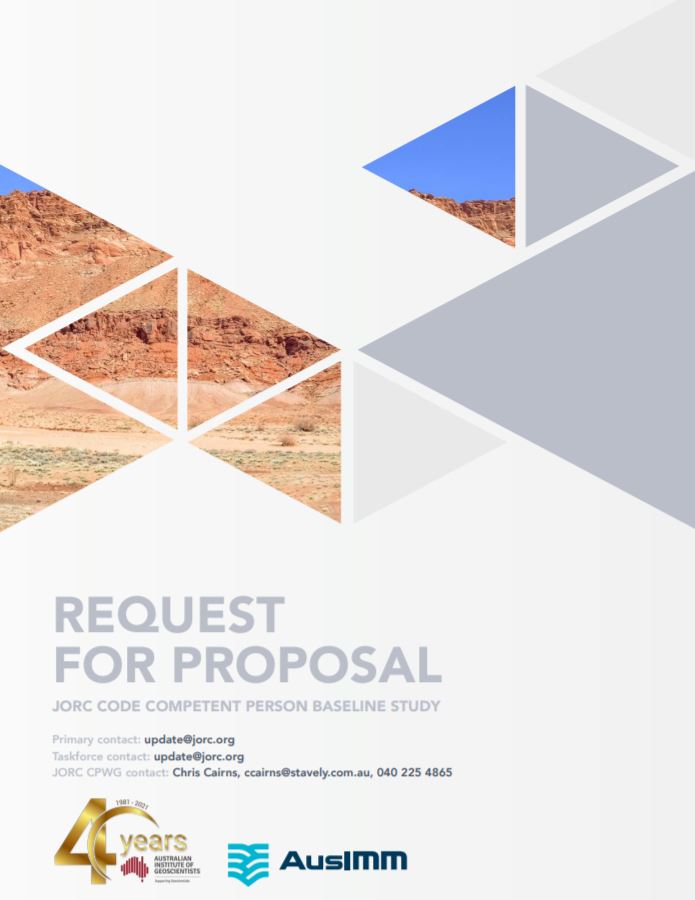
The latest edition of AIG News, the Australian Institute of Geoscientists member newsletter is now available in full colour and digital format and best of all FREE for all readers!
NEW! View the latest AIG News in Click here to view Flipbook! Or download the PDF below:
Inside this latest issue…
From Your President; AIG Constitution revision 2022; AIG 21 Years Anniversary; Institute News; Snippets; Thoughts on AIG’s 40th Anniversary; AIG Distinguished Service Awards made for outstanding contribution; AIG Service Award for Sam Lees; AIG Council and Board Members;
Fundamentals for Coal Geologists; The 16th SGA Biennial Meeting; Leadership Development Scholarships For Women In Mining & Resources; Events Calendar; AIG Council & AIG News and more.
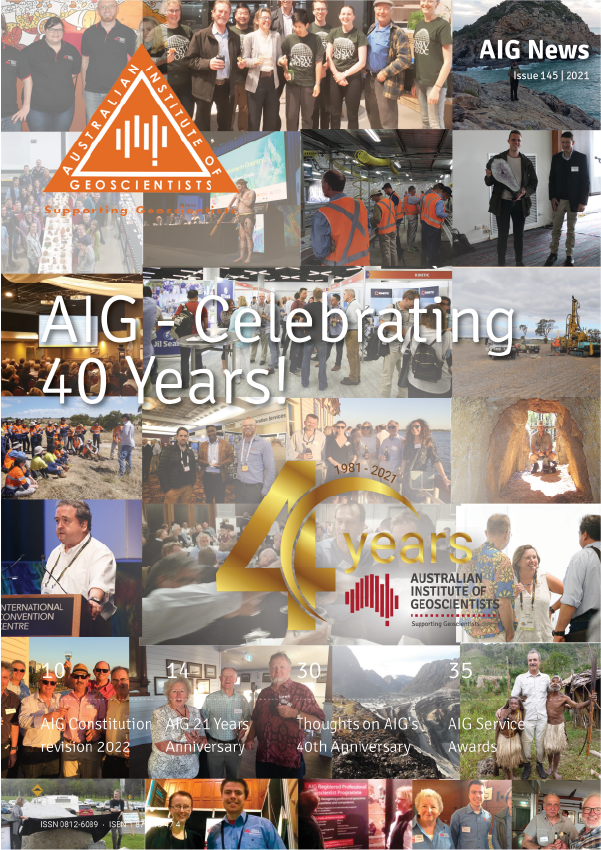
AIG News is optimised to be read with Adobe Reader. Versions are available for printing (with Adobe Reader version 4.1.3 or later) or either reading on-line or downloading for reading off-line with your laptop or tablet (with Adobe Reader version 6.1.5 or later). Both versions have been tested and are compatible with Apple Preview and iBooks for Mac and iPad users.
If you experience any difficulty accessing and reading AIG News using the Adobe Reader versions listed here technical support is available.
We hope that you enjoy the latest AIG News and welcome your feedback.
Members will retain full access to the current and previous issues via the AIG membership portal, accessed via the Institute’s website.
Selected feature articles will appear in AIG Journal and an annual compilation volume that will be provided free to members and available for sale to non-members.
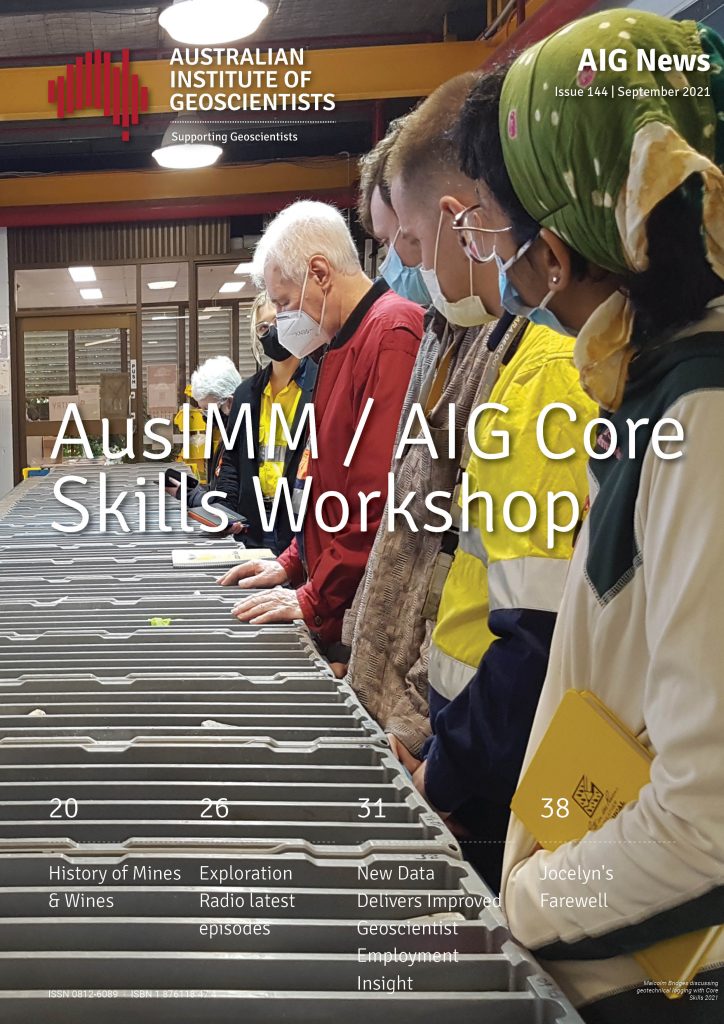
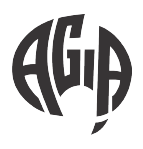
The AGC in association with the Australian Geoscience Information Association (AGIA) has established the Lee Parkin Grant to provide assistance for projects furthering research into geoscience information and data management in Australia.
The Grant of up to $2500 is open to members of AGC affiliated organisations, including AIG, who are Australian residents engaged in the practice or study of geoscience information and data management.
The AGIA grant was established in 2020 with funds made available from the closure of AGIA, after more than 40 years of professional service and networking for the geoscience information community. The membership comprised a mixture of geologists, librarians and others interested in geoscience information.
Lee Parkin
Lee Parkin obtained a degree in Geology from the University of Adelaide with further degrees in Mining Engineering at the South Australian School of Mines and later at the Broken Hill Technical College. He joined the South Australian Department of Mines in 1950 and spent much of the rest of his professional career with the department moving up to Chief Geologist, Deputy Director of Mines and ultimately Director of Mines before resigning to take up the position of inaugural Director of the new Australian Mineral Foundation (AMF) in January 1972.
As Director of AMF he developed and implemented the Foundation’s highly successful programme of continuing education through its innovative workshop course model and through seminars and conferences. His leadership and vision in accepting the creation, development and management by AMF of the Australian Earth Sciences Information System (AESIS), and the Australian Thesaurus of Earth Sciences and Related Terms, notwithstanding the tentative environment of the times, made these two undertakings possible. His personal subject knowledge and prodigious work ethic sustained these projects through most of their lifetime. His major contribution to geoscience information in Australia remains his marathon feat of indexing some 60,000 of the 200,000 records in AESIS, and his reviews of over 2500 books for AMF’s Informative Book Review Programme, plus his major part in the compilation of the Australian Thesaurus of Earth Sciences and Related Terms.
Lee Parkin chaired the inaugural meeting at which AGIA was formally created on 23 August 1976 during the 25th International Geological Congress in Sydney, and in 1991 was made AGIA’s first Life Member.
Aims
The Grant will provide financial assistance for projects that have one or more of the following objectives:
Value
The total value of the grant will be an up-front payment of up to a total of $2500 per year, to be awarded in full to one applicant, or in part to multiple applicants.
Eligibility
The Grant is open to members of AGC affiliated organisations who are Australian residents engaged in the practice or study of geoscience information and data management. Information and data management is the range of activities, which ensure long-term access to geoscience data & information in a usable form, and includes the selection, storage, organisation, preservation and provision of ongoing access to data & information, and the development of technology, practices and standards related to these activities.
Current Grant Administrators/Selection Panel are ineligible to apply.
Applications are made via email addressing the content listed below:
Entries are to be submitted via email to admin@agc.org.au by 5pm AEDT Friday 19 November 2021.


Earth Science Week 2021 is just around the corner. Take the opportunity to join in some of the activities!
11am – 12noon. Online (register here from Thursday 30 September)
Geoscience Australia’s CEO James Johnson and Chief Scientist Steve Hill will preview Geoscience Australia’s new Science Strategy, and explain how we apply our science to support a strong economy, resilient society and sustainable environment. Learn what makes Geoscience Australia the nation’s trusted advisor on the geology and geography of Australia.
Accessible any time. Online (visit this webpage any time from 10–16 October to participate)
Think you know your granite from your gold? Gather online with your fiendishly-clever family, competitive classmates or fun-loving friends to participate in our Earth Science Week quiz! Test your knowledge of earthquakes, fossils, mountains and more! Are you a Geoscience Genius?
The quiz is designed for upper-primary aged children, but it is great fun for everyone. Play individually or as a group.
Accessible any time via Geoscience Australia’s Facebook page.
While many Australians cannot currently travel, they can still explore the country virtually through Satellite Sleuths. Each day from 11–15 October inclusive, Geoscience Australia will share an earth observation image showing something fascinating somewhere in Australia. Your task is to identify what the image depicts. Don your trilby hat and trench-coat and test who is the most super of all sleuths amongst your friends and family.
Via radio in the ACT on 98.3FM, 11am – 12noon, or the following week via podcast at https://fuzzylogicon2xx.podbean.com/
Move over Batman, there are new crime fighters in town! Guests from Geoscience Australia will share fascinating stories about how geoscience can be used to fight crime on the Fuzzy Logic Radio Show.
Geochemist Patrice de Caritat, will dish the dirt on how researchers in Canberra trialled a new method of tracking the movements of criminals using soil, Collection Officer Natalie Schroeder will share how Australia’s first female Commonwealth palaeontologist helped to solve a crime at Canberra’s Federal Golf Club in 1952 using her knowledge of fossils, and Geoscience Australia Laboratories Director Keith Sircombe will explain how a machine that uses radioactivity to date ancient rocks was used to match gunshot residue with specific brands of ammunition as part of ground-breaking research.
9:30am – 10:15am. Online (Register here).
Did you feel the earthquake that shook south-eastern Australia? What makes the earth rumble and how do we measure and record earthquakes? Join Geoscience Australia educators in discussing these questions and more. This online program is targeted at upper-primary students but is available to all students, teachers and parents across Australia.
This online session is hosted by Distance and Rural Technology Learning (DART) and Virtual Excursions Australia (VEA) as part of their Earth Science Week programming.
3:30pm – 4:45pm. Online (Register here).
Do you teach science? Join us to hear about the variety of Earth science resources available for teachers to use in the classroom.
This online session is hosted by Distance and Rural Technology Learning (DART) and Virtual Excursions Australia (VEA) as part of their Earth Science Week programming.
7pm – 8:30pm via Zoom (Register here).
Dr Will Grant and Dr Rod Lamberts from the Australian Centre for the Public Awareness of Science will conduct a live recording of their much-loved podcast, described as ‘the science show for people who sat up the back of the classroom’ through Zoom. They will be joined by Digital Earth Australia Earth observation scientist Claire Krause and Tanja Pejic from the National Earthquake Alerts Centre for a special Earth Science week edition of the podcast exploring the history of geoscience and how our understanding of the earth beneath our feet has changed over time.
11 am – 12 noon. Online (register here from Thursday 7 October).
Antarctica conjures images of expansive white icesheets but what about the 1% not covered by ice? Though small, these exposed islands of rock are hotspots of human and animal activity, and our presence leaves an enduring legacy on the fragile landscape. In this seminar from Dr Steph McLennan, you’ll find out about Geoscience Australia’s work to help better manage our environmental impacts in Antarctica.
Teachers have access to a great range of activities provided by the American Geosciences Institute who coordinate Earth Science Week globally.
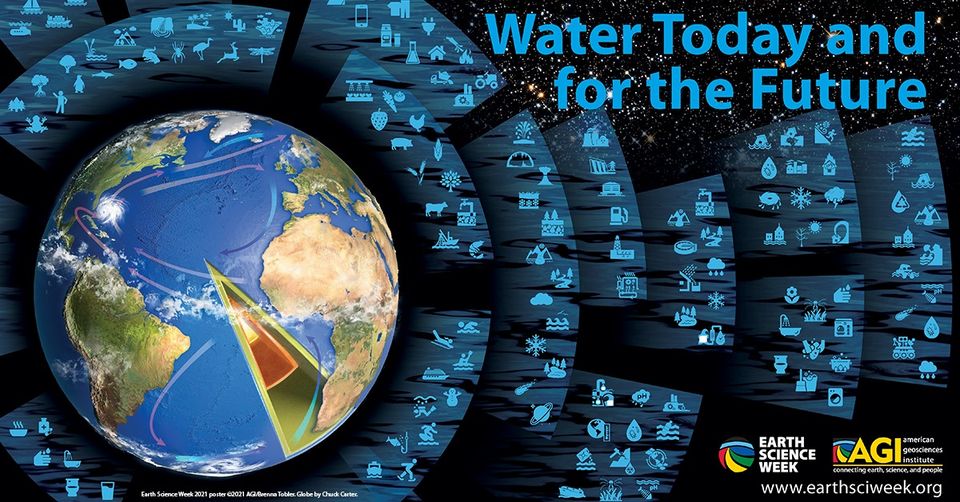
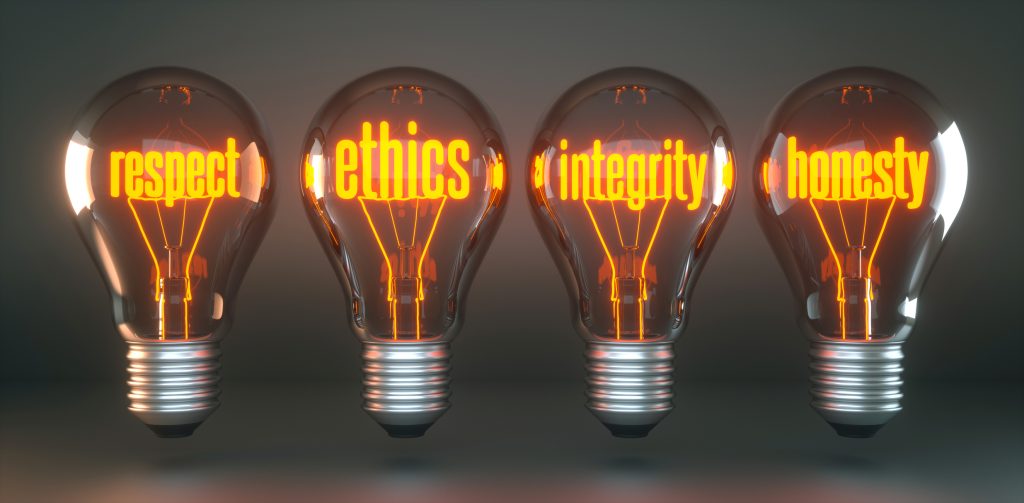
AIG’s Code of Ethics requires all members to adhere to the Australasian Code for Reporting of Exploration Results, Mineral Resources and Ore Reserves (the JORC Code), which sets out minimum standards for public reporting of this information.
The JORC Code stipulates “Public Reports of Exploration Results must contain sufficient information to allow a considered and balanced judgement of their significance. Reports must include relevant information such as exploration context, type and method of sampling, relevant sample intervals and locations, distribution, dimensions and relative location of all relevant assay data, methods of analysis, data aggregation methods, land tenure status plus information on any of the other criteria listed in Table 1 that are material to an assessment.
Public Reports of Exploration Results must not be presented so as to unreasonably imply that potentially economic mineralisation has been discovered. If true widths of mineralisation are not reported, an appropriate qualification must be prominently included in the Public Report.”
Care must also be used in relation to recognising “World Class Deposit” or “Tier 1 deposit“. Inappropriate use of, what could be considered entrepreneurial language could contravene the requirement for balanced reporting in public statements made in compliance with the JORC code.
Andrew Waltho
Complaints Committee
Note that there is a fantastic event coming up quickly and tickets are selling out fast.
The Student-Industry Mixer on Thursday 14th October is being held at The Fox Hotel in South Brisbane.
This event is being jointly arranged by the AIG, the IAH, PESA, GSA and ASEG.
The purpose of the event is to connect student and graduate members to industry geoscientists of all career stages, across a variety of career disciplines.
A perfect opportunity to try out your mentoring skills and another great networking opportunity!
Where: The Fox Hotel, Arcadia Room
When: Oct 14 2021
Time: 5:30 for 6:00 pm start
Cost: Students & Graduates: Free, Industry Professionals: $10, Non-members: $15
Registration: Sign up here (https://www.aig.org.au/events/qld-industry-mixer-night/)
